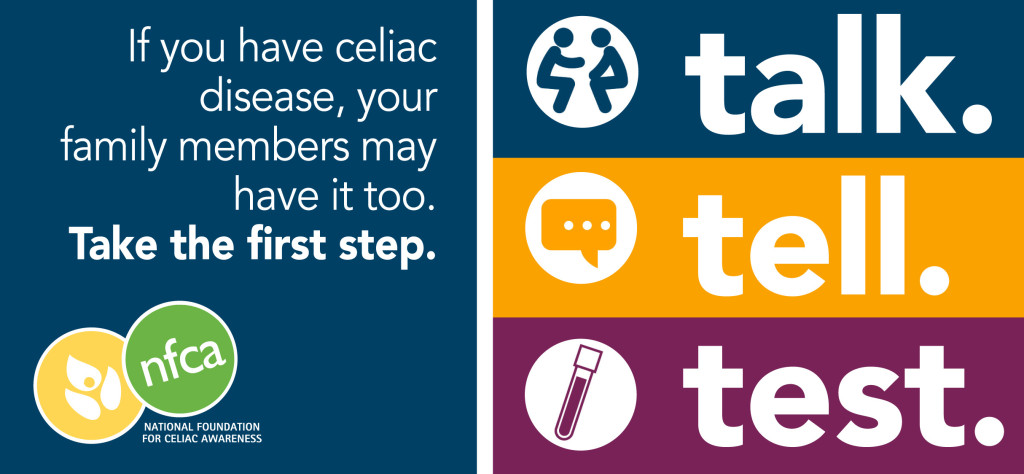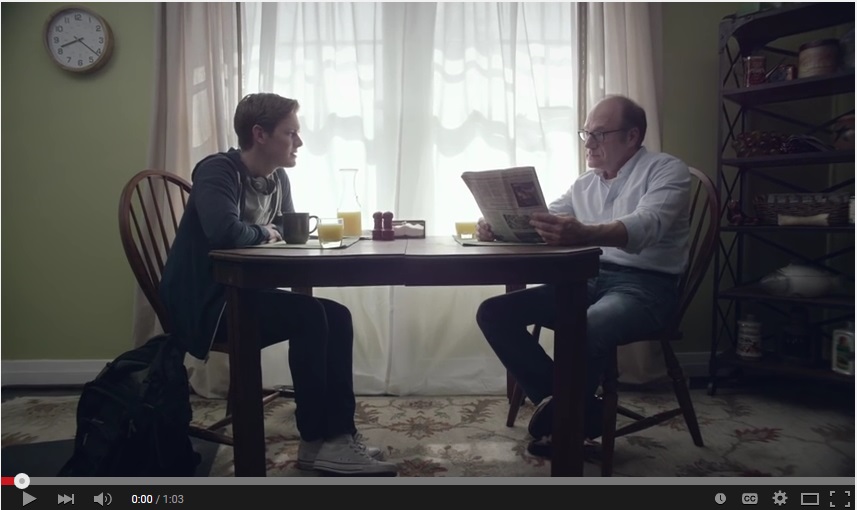We are coming to the end of Celiac Awareness Month and I have been thinking about what I could do to help raise awareness of this disease which greatly impacts our lives and so many others. I’m a big proponent of utilizing resources already out there versus reinventing the wheel and with that in mind, I reached out to my friends, the amazing advocates at the National Foundation for Celiac Awareness (NFCA). The team at the NFCA, led by Alice Bast, works tirelessly every day to help educate and empower our community. Their website is one of the first resources I used to gain information after my son and I were diagnosed and I am proud to be one of their Blogger Ambassadors today.
A couple of years ago, I shared my personal story on their site. In it, I discussed how my son’s celiac diagnosis led to mine and then how my diagnosis led to my mother’s. Celiac disease is often inherited. It is so important to encourage our family members to get tested or to test ourselves if we are managing the disease for others in our family. The NFCA’s new campaign, Seriously, Celiac Disease, aims to give people the tools to do so. Please welcome my guests from the NFCA and learn more about the campaign below.
Thank you to Jackie, an NFCA Blogger Ambassador, for allowing us to guest blog about this very important campaign!
While celiac disease is the only autoimmune disease with a known trigger (gluten), there are still many areas that need attention. On average, it takes people 6-10 years to be properly diagnosed with celiac disease and as many as 83% of people with the genetic autoimmune disease remain misdiagnosed or undiagnosed.
It’s a huge problem; left untreated or mismanaged, celiac disease can cause serious long-term health consequences, like osteoporosis, other autoimmune diseases and even certain cancers.
The National Foundation for Celiac Awareness (NFCA) is working to change that through the extension of its Family Talk program, which launched in 2012.
Just before the start of Celiac Awareness Month 2015, NFCA launched the Seriously, Celiac Disease campaign, designed to tackle the problem of low diagnosis rates. People with biological relatives diagnosed with celiac disease have a much higher risk of developing the condition than the general public. So, to drive the diagnosis rate, NFCA is equipping people with celiac disease with the information they need to talk to their at-risk family members about celiac disease screening.
We know what you might be thinking. “Been there, done that.” We hear regularly from the celiac disease community about their struggles in getting their family members to understand their risk. NFCA set out to better understand the barriers to getting relatives screened for celiac disease. We conducted a research project and learned that the way the conversation happens is extremely important in getting relatives to take action and get screened. The research showed that family members want to know about their risk.
What they don’t want? A casual conversation that’s brought up multiple times, especially online and over social media.
NFCA’s research formed the “Talk. Tell. Test.” approach to helping biological family members understand their risk. In a nutshell, those diagnosed with celiac disease should make time to have a one-on-one, in-person conversation to talk to their family members, tell them the facts and urge them to test.
Seriously, Celiac Disease includes a video that shows you how to have the best conversation with your relatives, a Dos and Don’ts guide and an additional downloadable resource that at-risk relatives can use to talk to their doctor about screening. All of these resources can be found at www.SeriouslyCeliac.org. (Seriously, Celiac Disease Fun Fact: Some of the members of the film crew and the actors in the video are affected by celiac disease in some way. Get a behind-the-scenes look at the video here. You also might recognize actor Rob Brownstein, featured in the opening scene!)
It is very important to remember that people should not send their relatives the Seriously, Celiac Disease materials. NFCA’s research showed that family members are not likely to take action and get screened if information is simply shared with them via the internet.
This Celiac Awareness Month, take the time to get the conversation started. NFCA can show you how. Click on the video below to learn more.







